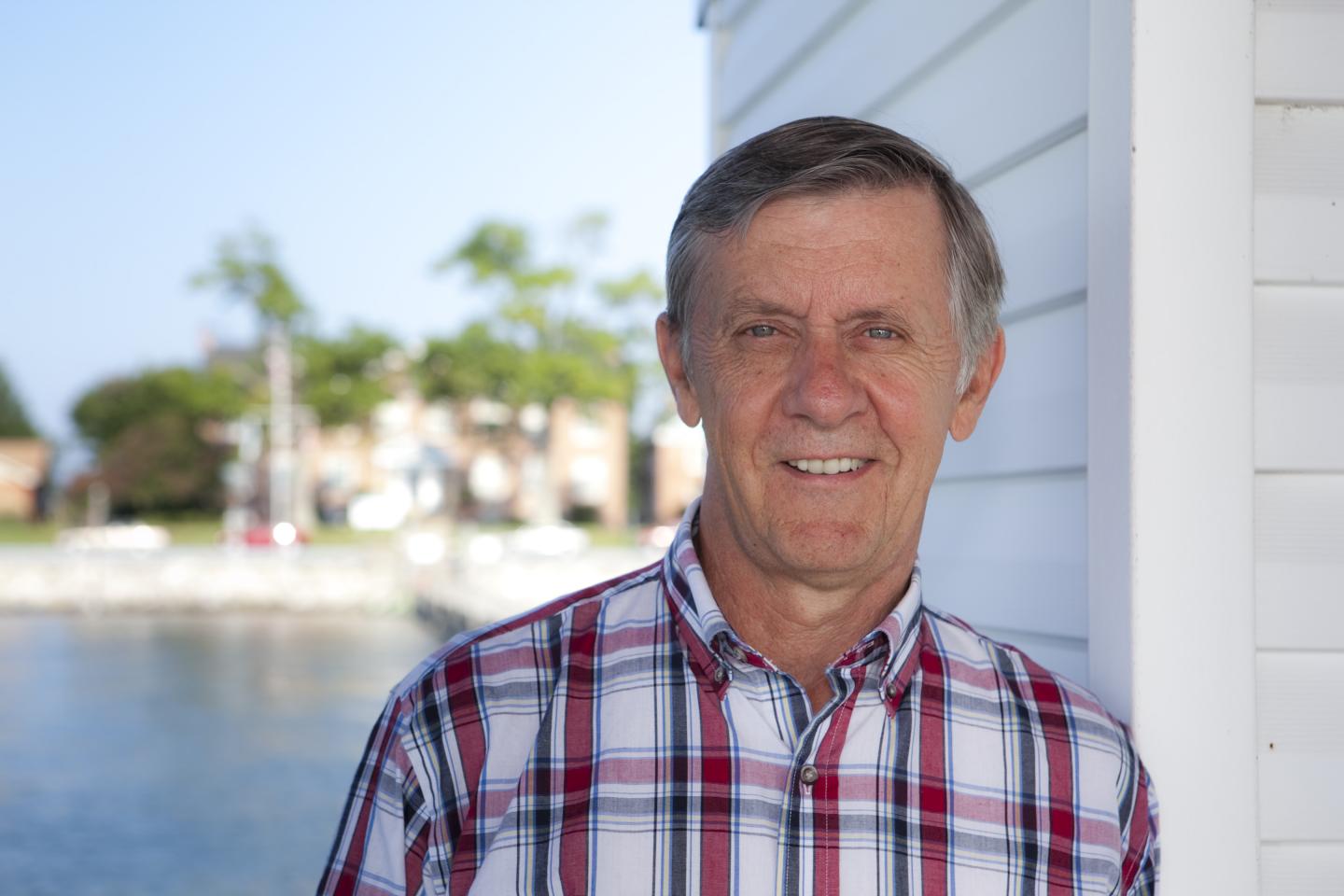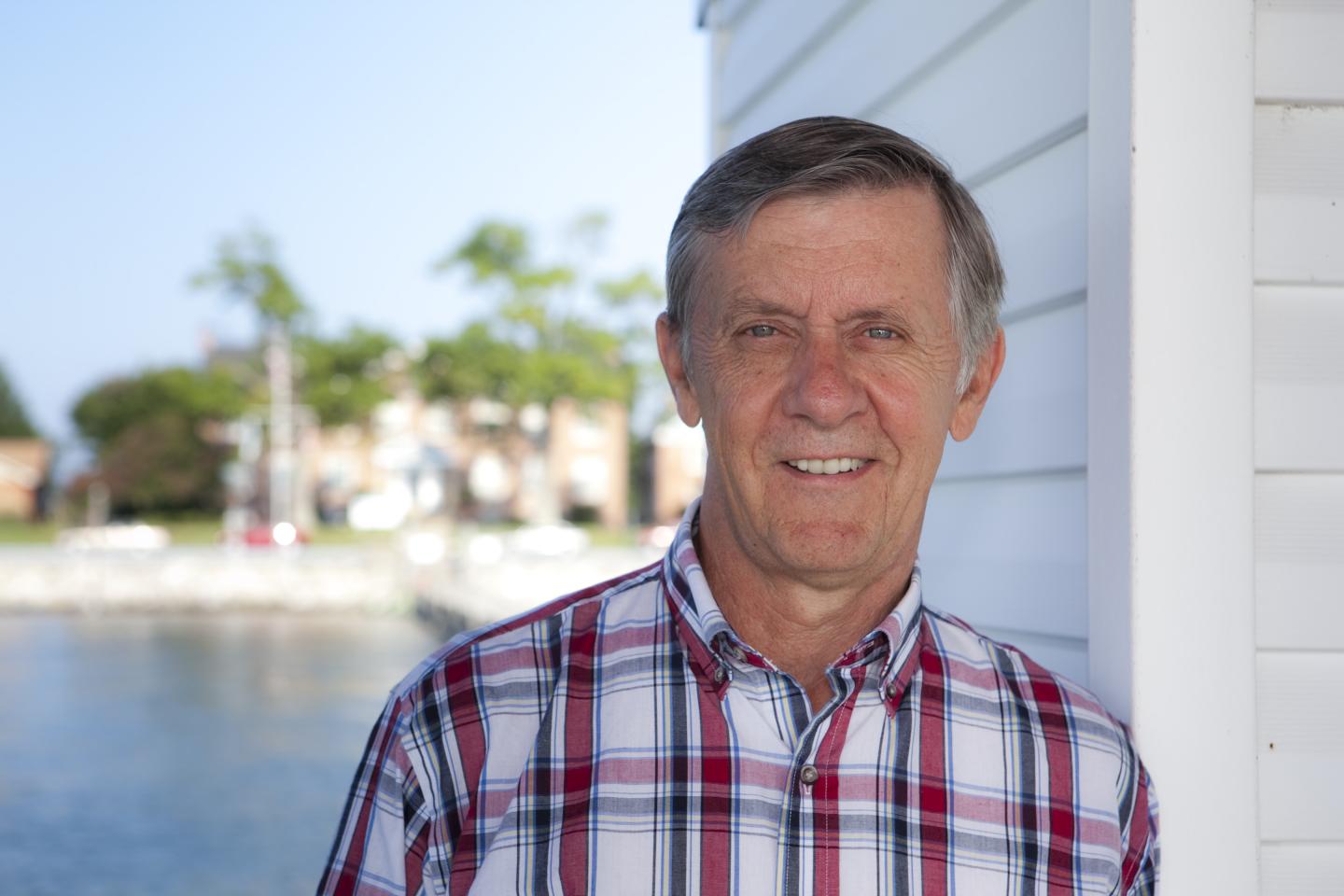
Credit: University of Maryland Center for Environmental Science/Cheryl Nemazie
ANNAPOLIS, MD (December 5, 2016)–Walter Boynton, a fixture in the world of Chesapeake Bay science for more than 40 years and a longtime professor and estuarine ecologist at the University of Maryland Center for Environmental Science's Chesapeake Biological Laboratory, received the prestigious Mathias Medal Friday night to recognize his distinguished career of outstanding scientific research that has contributed to informed environmental policy in the Chesapeake Bay region.
"The medal honors the depth of scientific research and the close relationships between scientists and policymakers that together have proven so beneficial for the Chesapeake Bay," said Fredrika Moser, director of Maryland Sea Grant College, which awarded the honor jointly with Virginia Sea Grant and the Chesapeake Research Consortium. The award is named for the late U.S. Senator Charles "Mac" Mathias of Maryland, who championed efforts to clean up the Bay.
"I am extraordinarily grateful to have been selected for this award. I'm honored, and I'm very humbled given the stature of the previous recipients," said Walter Boynton. "I think Maryland and the Chesapeake Bay may just be one of the best places on the planet Earth. The Bay is a huge and changing laboratory and it's right at our doorsteps."
Boynton coauthored one of the first scientific papers that implicated excess nitrogen washing into the Chesapeake from farms, parking lots, and other human sources as a key driver of the eutrophication process, which has damaged the Bay and other estuarine ecosystems worldwide. He and a variety of collaborators worked to persuade natural resource managers and policy makers to monitor nutrients in the Bay and to take bold actions to reduce nutrient loads. Eventually leaders responded with a series of management plans now credited with lowering amounts of nutrients in parts of the Chesapeake's vast watershed. Boynton helped to design the Chesapeake Bay Program's monitoring effort, which began in 1984 and is considered one of the best in the world.
"Environmental science is a 'we' deal, not a 'me' deal," Boynton added. "Whatever progress I've contributed, it's because I stand on the shoulders of the people who have gone before me and I hold lots of hands.
Boynton was hailed by the selection board for his wide-ranging and foundational research, which has offered new insights into how the Bay's ecosystem works. His pioneering research about the Bay's ecosystem dynamics provided new understanding of the causes and ecological consequences of the decline of seagrasses. In addition, his research on the decline of the Bay's striped bass population contributed to the adoption of a fishing moratorium, which helped the population to rebound. More recently, Boynton published findings detailing how long-term management practices to reduce nutrients can lead directly to improvements in Chesapeake Bay ecosystems, as measured by higher abundance of seagrasses, clearer water, and smaller blooms of algae.
"Walter is widely appreciated for his scientific genius and dogged pursuit of important questions," said Don Boesch, president of the University of Maryland Center for Environmental Science.
Boynton's long list of influential public speaking and engagement projects includes advising members of Congress, Maryland's legislature, and local officials. He is known for his lively, friendly public speaking style that puts in simple terms both scientific concepts and the need to continue efforts to preserve the Bay.
"Walter has helped us adopt policies that are based on science," said Ann Swanson, executive director of the Chesapeake Bay Commission. "All around the world they wonder how we've done that and we've done that because of people like Walter."
Board members also applauded his work as a mentor for students and especially his efforts to educate the public about coastal science.
"Walter is a gifted, passionate, and supportive teacher," said Tom Miller, director of UMCES' Chesapeake Biological Laboratory. "Students who have taken courses with him and those of us who are lucky enough to have taught alongside him know what an amazing educator and advisor he is. I would argue Walter's largest and longest impact would be to the generation of young minds he has touched over the years. "
Since the Mathias Medal was established in 1990, only six have been awarded, including one to Eugene Cronin, another pioneer in Bay science who hired Boynton for his first job at the Chesapeake Biological Laboratory when he was director in the late 1960s.
###
UNIVERSITY OF MARYLAND CENTER FOR ENVIRONMENTAL SCIENCE
The University of Maryland Center for Environmental Science leads the way toward better management of Maryland's natural resources and the protection and restoration of the Chesapeake Bay. From a network of laboratories located across the state, UMCES scientists provide sound advice to help state and national leaders manage the environment, and prepare future scientists to meet the global challenges of the 21st century. http://www.umces.edu
Media Contact
Amy Pelsinsky
[email protected]
410-330-1389
@umces
http://www.umces.edu
############
Story Source: Materials provided by Scienmag





